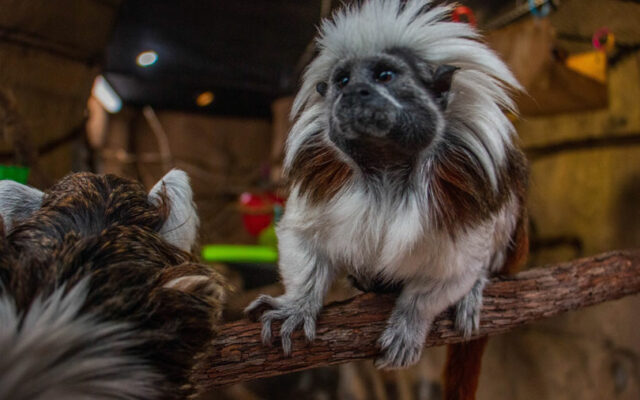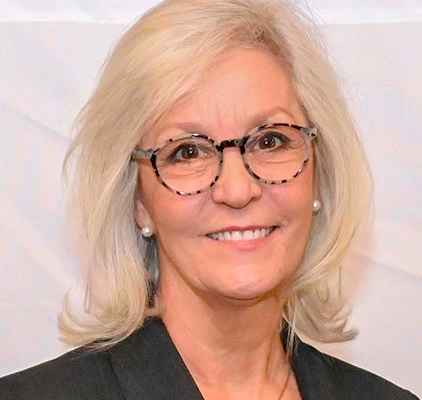Des Moines zoo now home to rare tamarins

The two newest additions to Blank Park Zoo in Des Moines are from the rainforests of Columbia, very rare primates known as cotton-top tamarins.
Zoo spokesman Ryan Bickel says most Iowans will never have seen one of these creatures up close, if they’ve even heard of a tamarin.
“The species is critically endangered,” Bickel says. “There’s estimated to be less than 2,000 adult individuals left in natural areas. We hope that they will have babies and increase the population of the cotton-top tamarin.”
The animals have brown fur across their backs, but they also have distinctive snow-white manes, which is why they’re called cotton tops.
“The tamarins are very unique. They have white hair that sticks out all around their head and their face,” Bickel says. “It sort of looks like they might have been the inspiration for an ’80s rock band hairstyle.” He says the tiny, fast-moving tamarins are curious and playful, they’re excellent climbers, and their habitat at the zoo is set up to recreate their South American forest home.
“The cotton-top tamarin is a very small primate. They weigh less than one pound. They have a really long tail compared to their body size,” Bickel says. “The pair that is here at Blank Park Zoo is very inquisitive. When I went up to the window, they came right up to me and sort of said ‘hi’ to me in their way. Very fun to look at.”
Their names are Kida and Eddie and the tamarins are a breeding pair within the Species Survival Plan, so zoo officials hope to see babies in the future. Bickel says these animals are considered ambassadors for their wild counterparts. “What we really want people to take away from them when they come to the zoo is what steps can they take to help protect their natural areas,” Bickel says. “Obviously, deforestation, loss of habitat is one of their major obstacles for them surviving in natural areas.”
Tamarins typically live-in family groups of two or more and have an omnivorous diet consisting of fruits and small animals.
MATT KELLEY






